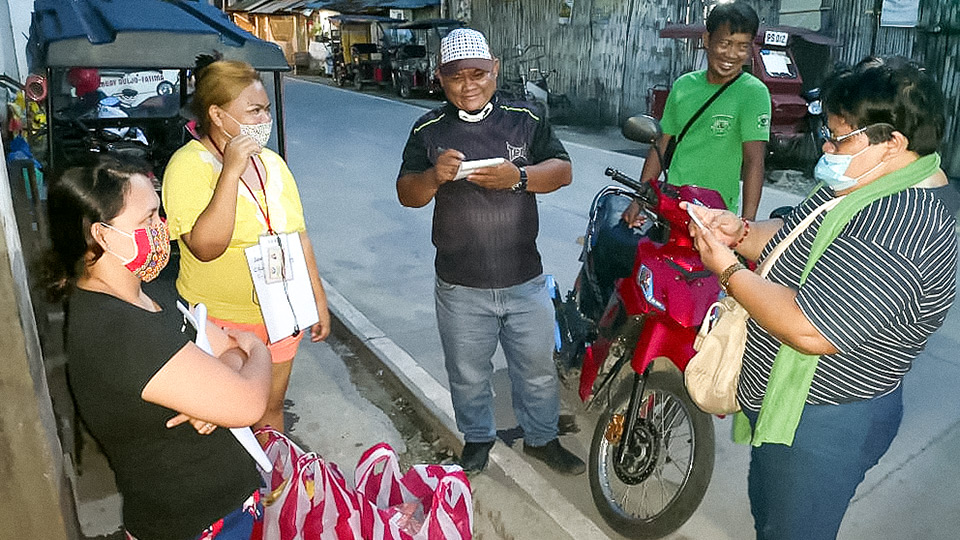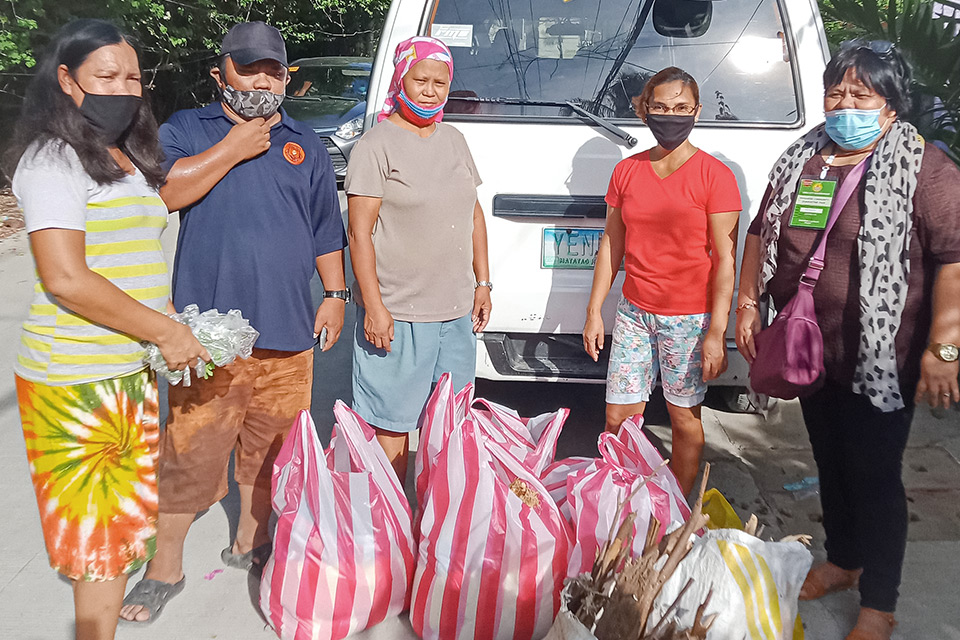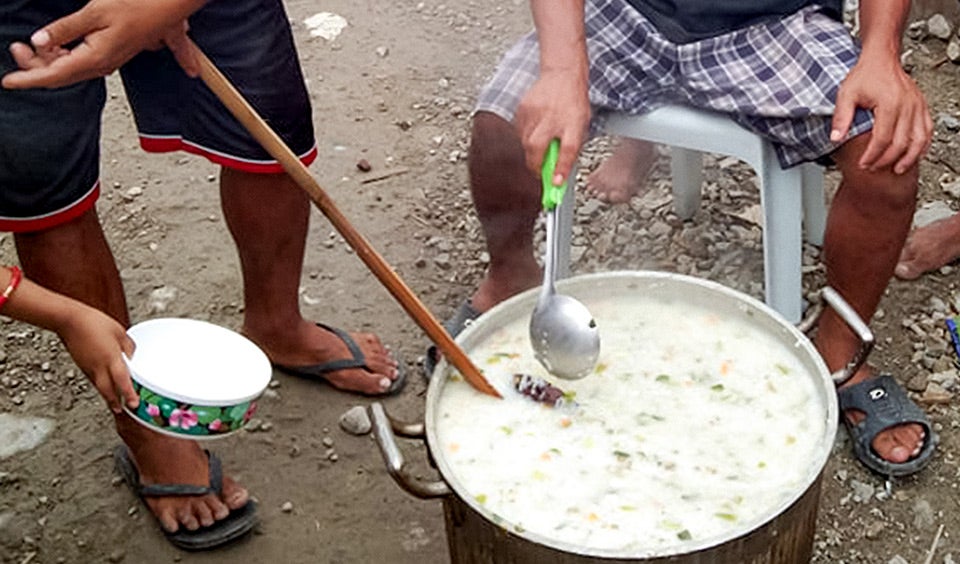As pandemic drags on, Philippine community group helps families overcome challenges old and new
Date:
Author: Rash Caritativo

Covid-19 lockdown restrictions have not stopped Francisca Lofranco Tagalog, a community leader from Cebu City in the central Philippines, from helping women and children who experience domestic violence.“We have faced some new difficulties in our operations,” says Tagalog, 60, who leads the organization Bantay Banay (Family Watch). “But it did not stop us from doing the things we normally do for the community.”Domestic violence is nothing new to Tagalog, who has been helping women seeking support since joining Bantay Banay in 1998. But the pandemic has brought new challenges. At the height of quarantine restrictions, she was responding not just to reports of violence but also to the welfare needs of their members and beneficiaries.
“Some of our members and beneficiaries got infected by COVID-19. So, we organized distribution of relief packages to their families with the help of the Lihok Pilipina Foundation,” a local women’s empowerment organization, including food, supplements and traditional medicines, she says.
“We also made sure to monitor the status of those infected in each of our chapters. We sometimes had to push relief packages through holes in their roof.”
Bantay Banay has chapters in 50 of the 80 barangays (administrative units) of Cebu City, including Sawang Calero, where Tagalog works. The size of the organization has been a logistical challenge, she says. “The burden is quite heavy so we have to ensure that every action we take is coordinated. We established a group chat for each barangay to ease the coordination mechanisms.”

Gender-based violence (GBV) remains a primary concern. While official data shows that the number of reported GBV cases fell from 6,779 in 2019 to just 1,389 in 2020, after the pandemic and lockdowns took hold[1], feedback on the ground tells a different story. There is an abundance of evidence, anecdotal and other, that the pandemic has led to a surge in violence against women and girls behind closed doors so great that it has been dubbed a “shadow pandemic”.
As an example, one beneficiary’s husband lost his job as a tricycle driver during the pandemic. This triggered longstanding issues in the couple, resulting in fights that would sometimes turn violent. She eventually resolved to separate from her husband with support from Tagalog and Bantay Banay.
Recently elected president, Tagalog, and her organization continuously provide support to such cases through legal advice and interventions. So far they have filed seven cases and secured one conviction. They also provide referral mechanisms or even quick-response interventions of their own. “My house even turned into a shelter once for survivors of domestic violence,” said Tagalog.
The support teaches women how to recognize abuse and act on it, “even file cases against abusive partners,” says Nona Sasam, one of Bantay Banay’s newest members. “Educating women on violence against women and children also allows women to take leadership roles in the household and their communities.”

Tagalog has not always worked on women’s rights, or even with community engagement. She used to sell tuyo (dried fish), before she was recruited to Bantay Banay by a former woman counsellor and senior member of the group.
“I never really cared about laws affecting women in the past,” she says. “When I started with Bantay Banay, I attended trainings, seminars, and meetings. I read the laws. I listened to stories. I suddenly realized everything that is wrong with our culture when it comes to treating women. And I took action.”
Carrying these stories and experiences with her, Tagalog mobilized women, indigenous, and grassroots groups to join the people’s dialogue Voices of Women held in March 2021, organized by Lihok Pilipina Foundation, a non-governmental organization in Cebu that works for the education and empowerment of women, with the support of UN Women in the Philippines and the Japanese Government.
“As we continue to experience the pandemic and its consequent restrictions in mobility and opportunities, empowering grassroots organizations to address violence against women is vital,” says Camille Adle, UN Women’s Programme Analyst for COVID-19 and Humanitarian Action. “They will be the first to reach those who need immediate services, support and referral.”
Today, Tagalog leads Bantay Banay while also tending to her sari-sari (convenience) store. “I’m not getting any younger. My only wish is for the programmes to continue for years even without me at the helm. I realized how really important it is to empower other women. To sustain the gains we have achieved, we have to develop the next generation of women leaders within the community.”
[1] Department of Interior and Local Government, RA 9262 Anti-Violence Against Women and Children Monitoring Report for Region VII (covering Cebu)